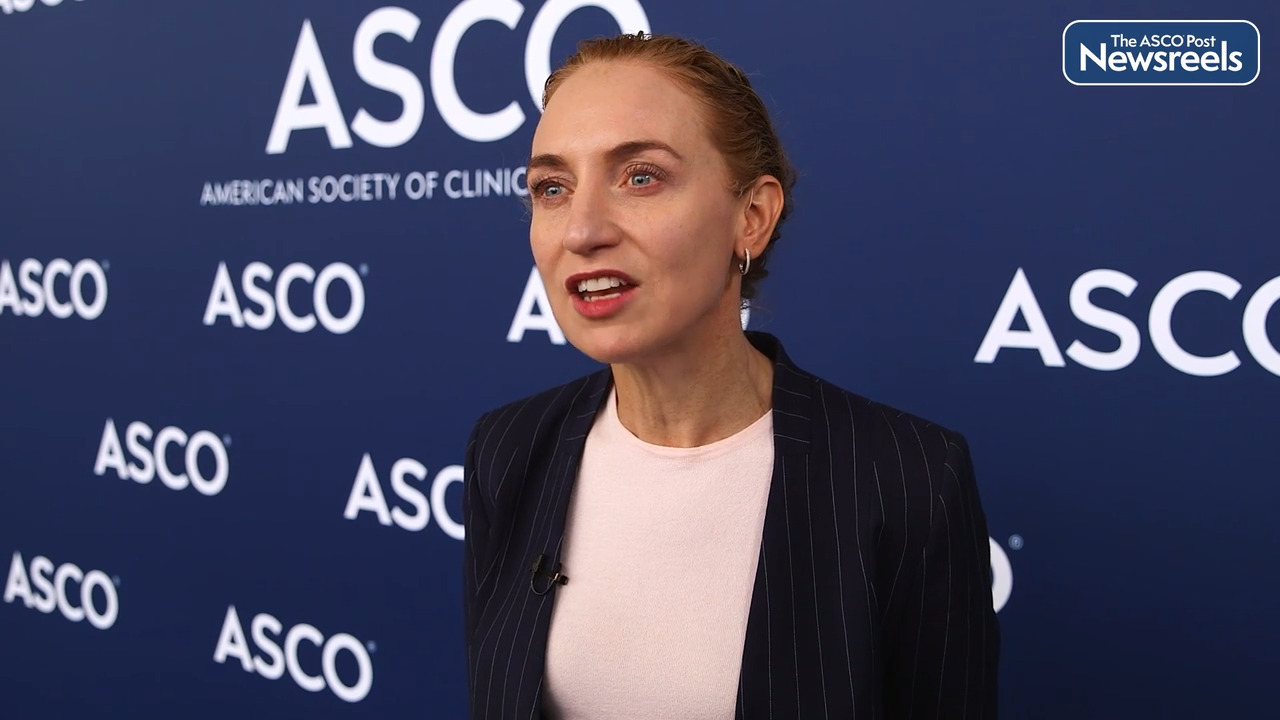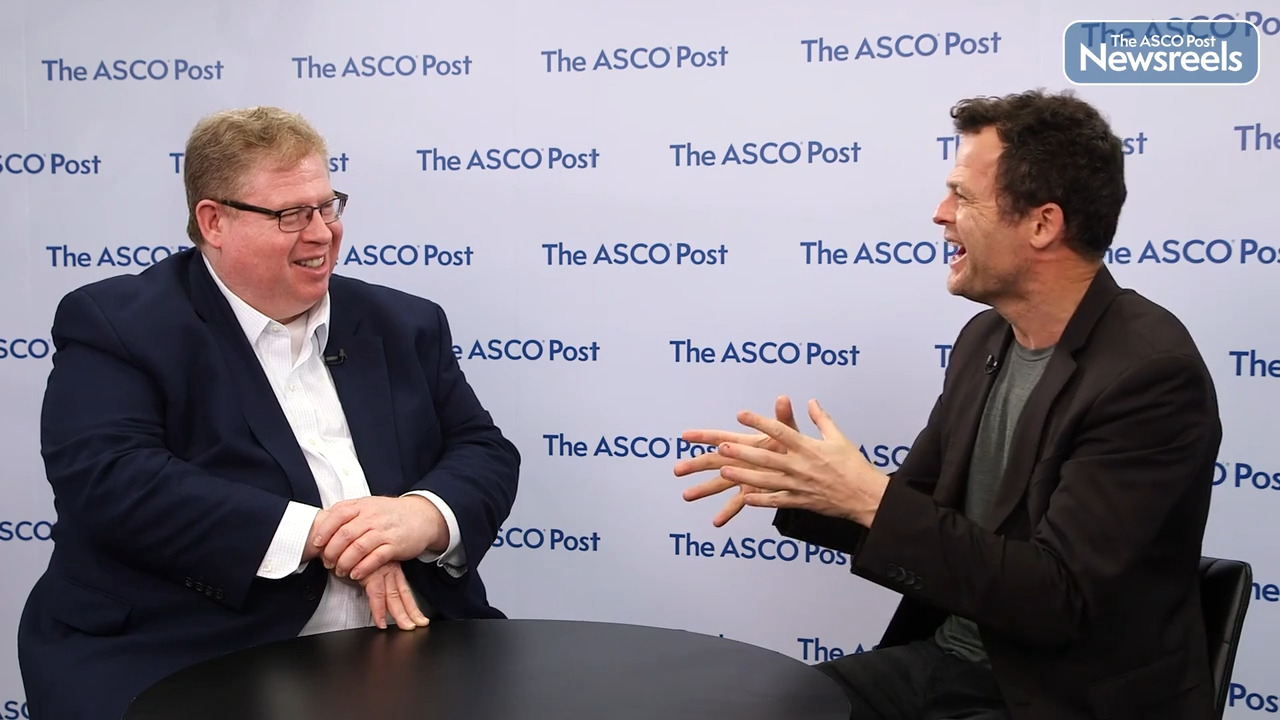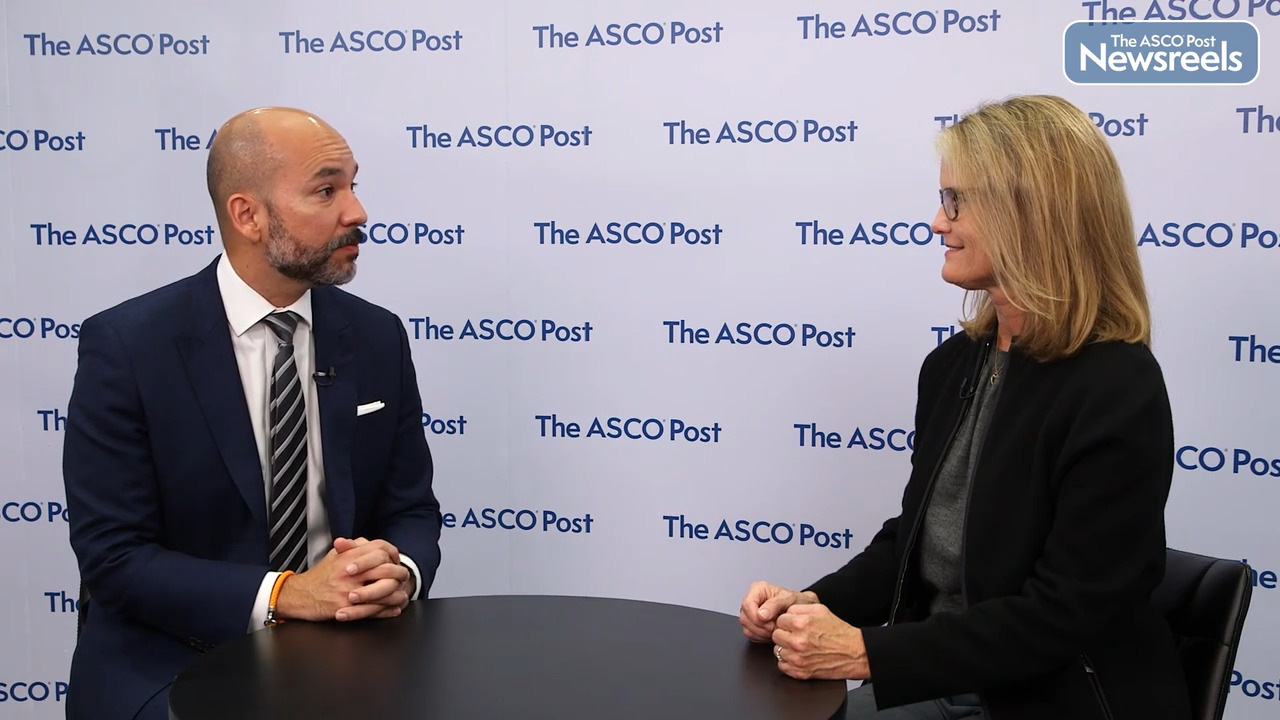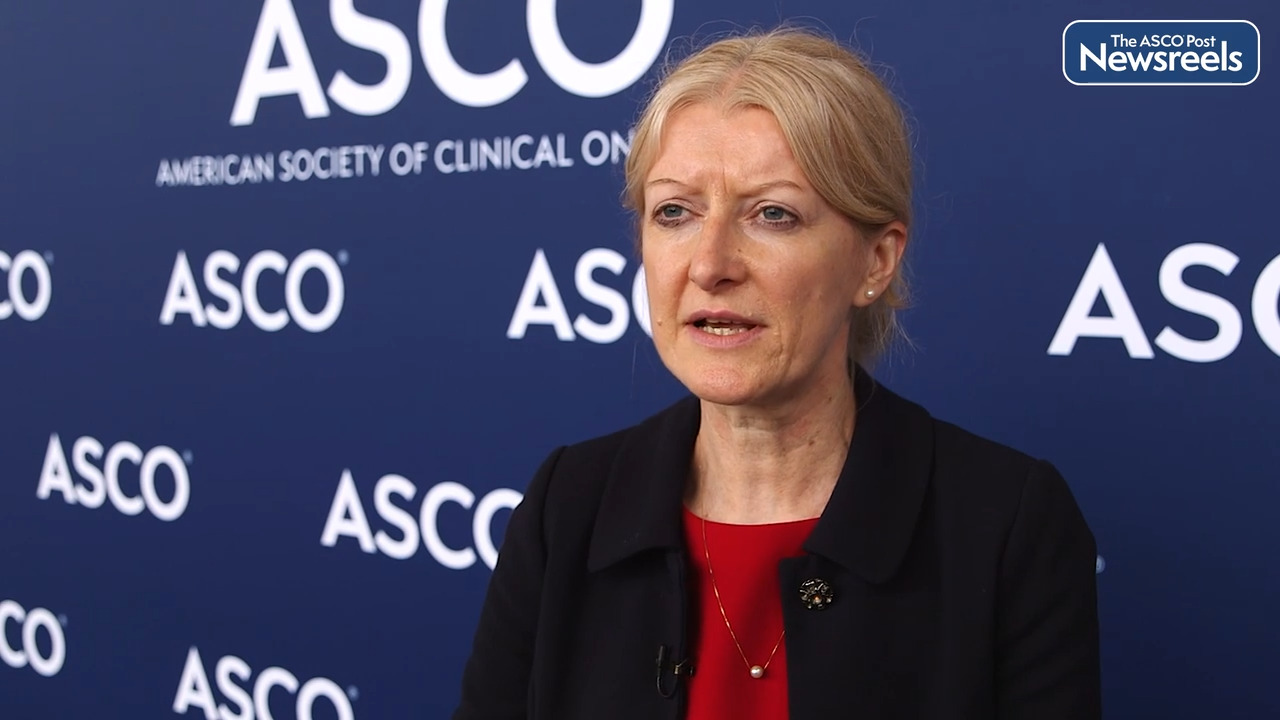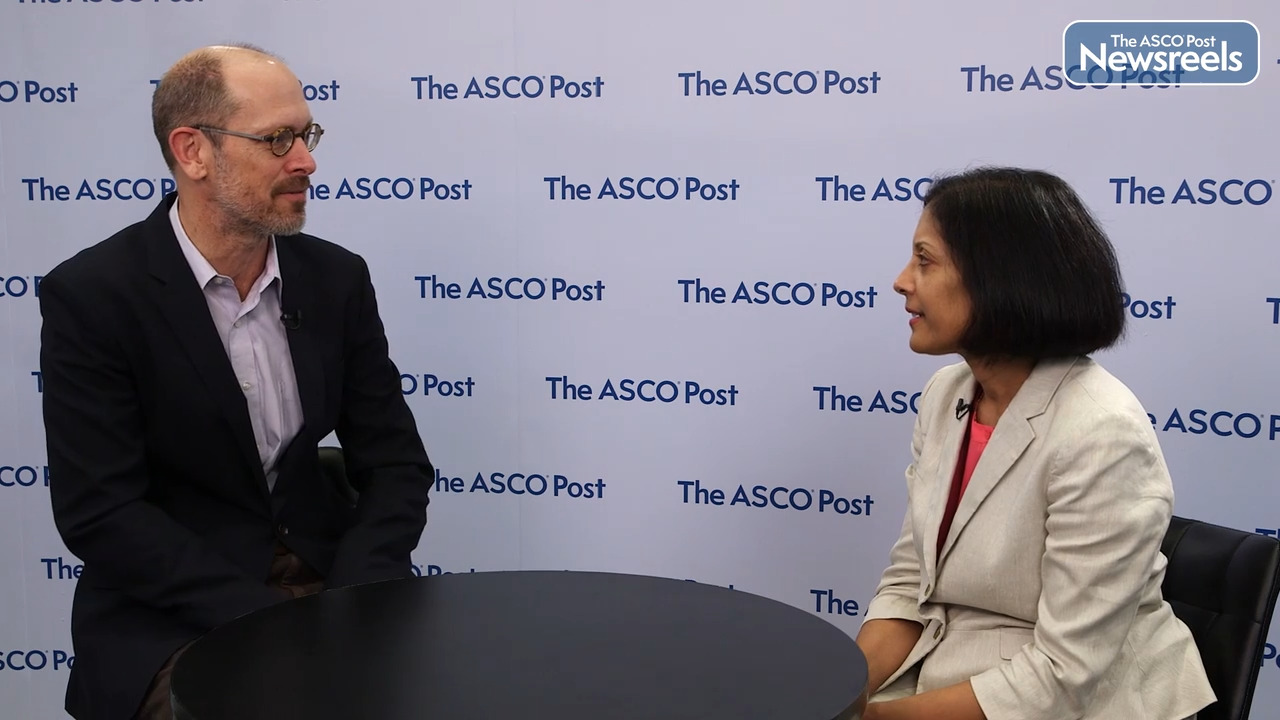Sumanta K. Pal, MD, on Urothelial Carcinoma: New Results on Cabozantinib Plus Atezolizumab
2022 ASCO Annual Meeting
Sumanta K. Pal, MD, of City of Hope National Medical Center, discusses findings from the COSMIC-021 study, which showed that cabozantinib plus atezolizumab demonstrated encouraging clinical activity with manageable toxicity in patients with inoperable locally advanced or metastatic urothelial carcinoma. The combination was administered as first-line therapy in cisplatin-based chemotherapy–eligible and –ineligible patients and as second- or later-line treatment in those who received prior immune checkpoint inhibitors (Abstract 4504).
Transcript
Disclaimer: This video transcript has not been proofread or edited and may contain errors.
The COSMIC-021 study is a trial that includes multiple different histologies, multiple different cohorts. At this year's ASCO meeting, ASCO 2022, I presented data pertaining to cohorts three, four, and five. This specifically looked at patients with advanced urothelial carcinoma. The composition of each of the cohorts was distinct. In cohort three, we had patients that were cisplatin-ineligible. In cohort four, patients that were cisplatin-eligible. And finally, in cohort five, patients that had received prior immune checkpoint inhibitors. What ultimately it boiled down to is about 30 patients per cohort. In terms of the distribution of patients, it was predominantly male, as you might expect. Most of the patients had a bladder primary, although we did actually have good representation of upper track tumors, ureteral tumors, and so forth. That was about 30% of the study population. Amongst those patients that had received prior immune checkpoint inhibitors, about 30% had received one prior therapy implying immune-based treatment, and about 68% had received two or more prior lines of treatment. What we saw was actually a graded response. In patients who were cisplatin-eligible we saw the highest response rate, 30%. In patients that cisplatin-ineligible we saw a response rate of 20%. And finally, in patients that had received prior immune checkpoint inhibitors, we saw a response rate of 10%. It's always tricky to know what endpoints to follow in these relatively small studies. One thing that really I found intriguing was the duration of response. And with substantial follow up at this point in time, we still haven't reached the median duration of response amongst those patients that were cisplatin-eligible. I really think that the toxicity profile that we saw in this study really mimics what we've seen in other experiences of cabozantinib with atezolizumab. The combination seems to be very well tolerated. We used a dose of cabozantinib at 40 milligrams. The rates of hepatitis, the rates of other toxicities that you'd expect with a combination like diarrhea, were very reasonable and manageable by and large. So in summary, I think that this combination really does have activity. My hope is that we'll be able to study it further in certain contexts. And in particular, there's a study ongoing right now that I'll plug, MAIN-CAV through the Alliance. It's led by Dr. Shilpa Gupta. This trial I think is a prime way for us to understand the role of cabozantinib with immunotherapy where that combination's being assessed in the maintenance setting.
Related Videos
The ASCO Post Staff
Georgina V. Long, MD, PhD, of the Melanoma Institute Australia, The University of Sydney, discusses phase III findings from the KEYNOTE-716 study. The trial showed that compared with placebo, adjuvant pembrolizumab significantly improved distant metastasis–free survival in patients with resected stage IIB and IIC melanoma. The findings also suggest a continued reduction in the risk of recurrence and a favorable benefit-risk profile (Abstract LBA9500).
The ASCO Post Staff
Jonathan E. Rosenberg, MD, of Memorial Sloan Kettering Cancer Center, and Thomas Powles, MD, PhD, of Barts Health NHS Trust, Queen Mary University of London, discuss phase III findings from the KEYNOTE-426 trial, which appear to support the long-term benefit of pembrolizumab plus axitinib for first-line treatment of patients with advanced clear cell renal cell carcinoma (Abstract 4513).
The ASCO Post Staff
Gilberto de Lima Lopes, Jr, MD, MBA, of the Sylvester Comprehensive Cancer Center at the University of Miami, and Karen L. Reckamp, MD, of Cedars-Sinai Medical Center, discuss phase II findings from substudy S1800A of the Lung-MAP protocol. The data showed that ramucirumab and pembrolizumab improved overall survival compared with the standard of care for patients with advanced non–small cell lung cancer who were previously treated with immunotherapy and platinum-based chemotherapy (Abstract 9004).
The ASCO Post Staff
Mairéad G. McNamara, PhD, MBBCh, of The Christie NHS Foundation Trust, discusses phase II findings of the NET-02 trial, which explored an unmet need in the second-line treatment of patients with progressive, poorly differentiated extrapulmonary neuroendocrine carcinoma. In the trial, the combination of liposomal irinotecan, fluorouracil, and folinic acid, but not docetaxel, met the primary endpoint of 6-month progression-free survival rate (Abstract 4005).
The ASCO Post Staff
Michael J. Overman, MD, of The University of Texas MD Anderson Cancer Center, and Smitha Krishnamurthi, MD, of the Cleveland Clinic, review three abstracts, all of which enrolled patients with newly diagnosed RAS and BRAF wild-type metastatic colorectal cancer with left-sided primary tumors. The discussion centers on what the study results indicate about the use of an EGFR therapy and weighing the risk to quality of life from rash, in particular (Abstracts LBA3503, LBA3504, LBA3505).
